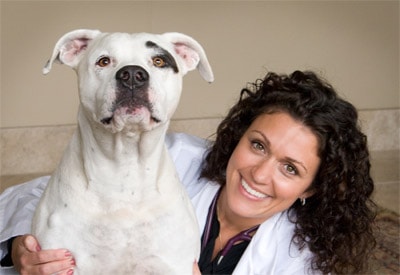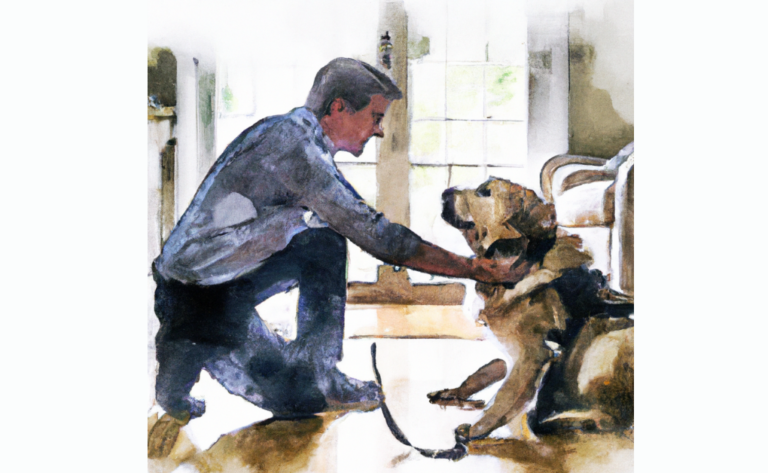Preventable Canine Diseases Through Vaccination and Deworming
Protecting your four-legged friend from harmful diseases is a top priority for every responsible pet owner. These preventative measures ensure your dog’s long-term health and happiness. We will discuss the importance of timely vaccinations and regular deworming, which can significantly reduce the risk of these common ailments. By staying informed and taking the necessary precautions, you can give your canine companion the best chance to live a healthy, thriving life. So, let’s dive in and learn how to safeguard your beloved pet from these potentially dangerous diseases!
Canine Vaccines are Essential for Preventing Diseases in Dogs
Dog vaccines protect your pet from potentially harmful and life-threatening diseases. Studies show that 99.9% of dogs can tolerate multiple vaccines simultaneously, similar to how children react. These vaccines stimulate the dog’s immune system to produce antibodies against specific pathogens. Then, when a vaccinated dog encounters the actual disease-causing organism, its immune system is primed to recognize and fight off the infection, preventing the disease or reducing its severity.
Vaccinations are vital for several reasons.

- They protect your dog from common and severe illnesses, ensuring a better quality of life and reducing the risk of costly treatments or premature death.
- By vaccinating your dog, you are also helping to control the spread of diseases within the canine population, contributing to the overall health of pets in your community.
- Some vaccines protect against zoonotic diseases, which can be transmitted from animals to humans, thus safeguarding the health of your family and the general public.
Two types of vaccines are available for dogs: Core Vaccines and Optional Vaccines.
Core Dog Vaccinations
Core dog vaccinations are the essential vaccines every dog should receive, regardless of lifestyle or location. These vaccines protect against the most common and severe diseases that pose significant health risks to dogs. The core dog vaccinations include:
- Canine Parvovirus (CPV): A highly contagious viral disease that affects dogs’ gastrointestinal tracts, causing severe vomiting, diarrhea, and dehydration. It can be fatal, especially in puppies and unvaccinated dogs.
- Canine Distemper Virus (CDV): A highly contagious and potentially fatal viral disease affecting dogs’ respiratory, gastrointestinal, and nervous systems. It can cause symptoms such as fever, coughing, diarrhea, vomiting, and seizures.
- Canine Adenovirus-2 (CAV-2): This vaccine protects against two diseases – infectious canine hepatitis (CAV-1) and respiratory disease (CAV-2). Infectious canine hepatitis is a viral liver disease that can be fatal, while CAV-2 can cause respiratory issues.
- Rabies: A fatal viral disease that affects the central nervous system of mammals, including dogs and humans. It is transmitted through the bite of an infected animal, and once symptoms appear, it is almost always fatal. Therefore, Rabies vaccination is required by law in most regions.
These core vaccinations are recommended for all dogs to protect them from life-threatening diseases and maintain overall canine population health. Veterinarians typically administer these vaccines according to a specific schedule, starting when puppies are around 6-8 weeks old and following with booster shots at various intervals throughout the dog’s life.
Optional Dog Vaccines
Optional dog vaccines, or non-core vaccines, may be recommended based on your dog’s specific risk factors, lifestyle, and geographic location. These optional vaccines are not required for every dog but may be beneficial in certain situations. Your veterinarian will help you determine which non-core vaccines are appropriate for your dog.
Some optional dog vaccines include:
- Bordetella bronchiseptica (Kennel Cough): This vaccine is recommended for dogs that frequently interact with other dogs in social settings, such as dog parks, boarding facilities, or doggy daycare centers.
- Canine Influenza (Dog Flu): This vaccine may be recommended for dogs with a high risk of exposure to the canine influenza virus, particularly those that frequent dog shows, boarding facilities, or doggy daycare centers.
- Leptospirosis: This bacterial infection is more common in specific geographic regions and dogs with frequent contact with wildlife or contaminated water sources. The vaccine may be recommended based on your dog’s risk of exposure.
- Lyme Disease: This vaccine may be recommended for dogs living in or traveling to areas with a high prevalence of ticks that carry the bacteria responsible for Lyme disease.
- Canine Parainfluenza: This vaccine protects against one of the viral components of kennel cough and may be recommended for dogs at higher risk of respiratory infections.
- Canine Coronavirus: This vaccine protects against a specific type of coronavirus that causes mild gastrointestinal symptoms in dogs. It is not routinely recommended but may be considered in certain situations.
It is essential to consult your veterinarian to determine which optional vaccines are appropriate for your dog based on its lifestyle, risk factors, and geographic location.
Deworming
Deworming in dogs refers to treating and preventing internal parasitic infections, specifically those caused by worms. Common worms that can infect dogs include:
- roundworms
- hookworms
- tapeworms
- whipworms
- heartworms
These parasites can cause various health problems in dogs, ranging from mild gastrointestinal issues to severe, life-threatening conditions.

Deworming involves administering medication to your dog that targets and eliminates the specific worms in its system. It’s essential to use the appropriate deworming medication for the type of worm infection, as not all deworming treatments are effective against every kind of worm.
Puppies are especially susceptible to intestinal worms and should be dewormed early. Deworming typically begins when puppies are 2 to 3 weeks old and continue every two weeks until they are about 12 weeks old. After that, deworming should be done regularly throughout a dog’s life based on its risk factors and your veterinarian’s recommendations. Depending on the specific circumstances, this may involve deworming every few months, annually, or as needed.
Regular veterinary check-ups, including fecal examinations, can help detect worm infections in dogs and ensure they receive the appropriate deworming treatment. Preventative measures, such as monthly heartworm preventatives and flea control, can also help reduce the risk of worm infections in dogs.
When To Start Puppy Vaccinations and Deworming
Starting puppy vaccinations and deworming early is crucial for their health and well-being. Here is a general guideline for when to begin these treatments, but it’s essential to consult your veterinarian to create a tailored vaccination and deworming schedule for your puppy based on their specific needs and risk factors.
Puppy Vaccinations:
- 6-8 weeks: Your puppy should receive their first round of vaccinations, which usually includes protection against canine distemper, parvovirus, and canine adenovirus type 2 (hepatitis). This is also when the Bordetella (kennel cough) vaccine is often administered.
- 10-12 weeks: The second round of vaccinations typically includes a booster for the initial vaccines and may incorporate the leptospirosis vaccine.
- 14-16 weeks: At this age, your puppy should receive a final booster for the core vaccines, and the rabies vaccine is often given around this time, depending on local laws and regulations.
Puppy Deworming:
- 2 weeks: Begin deworming your puppy at two weeks of age to eliminate any worms they may have acquired from their mother or the environment.
- 4, 6, and 8 weeks: Continue regular deworming to protect against parasites. This schedule should be followed even if the puppy has received their first vaccinations.
- 12 weeks: Administer another round of deworming treatment.
- 6 months: After reaching six months, your puppy should be dewormed monthly until a year old.
Once your puppy becomes an adult dog, you should consult your veterinarian about developing an appropriate vaccination and deworming schedule based on their lifestyle, risk factors, and geographical location. Generally, adult dogs receive booster vaccinations every one to three years and are dewormed at least twice a year.
Frequently Asked Questions
Disclaimer: The information provided on this veterinary website is intended for general educational purposes only and should not be considered as a substitute for professional veterinary advice, diagnosis, or treatment. Always consult a licensed veterinarian for any concerns or questions regarding the health and well-being of your pet. This website does not claim to cover every possible situation or provide exhaustive knowledge on the subjects presented. The owners and contributors of this website are not responsible for any harm or loss that may result from the use or misuse of the information provided herein.







